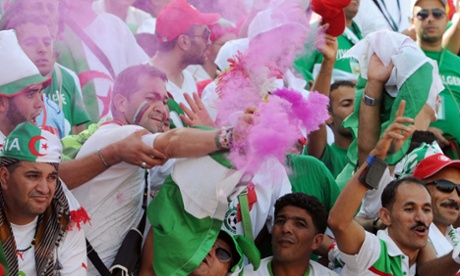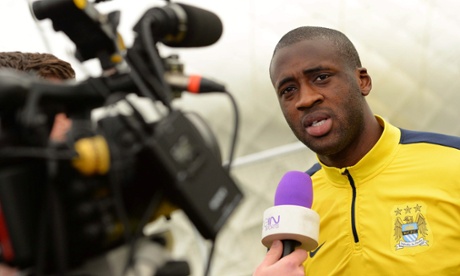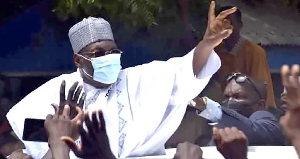In 1990, Cameroon were the darlings of the World Cup. With Roger Milla’s legendary hip shake, a win over Argentina and the team’s eventual run to the quarter-finals a door was opened for an additional African team to qualify for the tournament four years later. But then the continent's success dwindled and it would be more than a decade before the world would sit up and take note again.
In 2002, Senegal were the surprise package at an otherwise predictable World Cup. Like Cameroon before them, they started off their campaign with a win over the defending champions France and would eventually make it through to the quarter-finals.
Then in 2010 Ghana had one of the most impressive runs for an African team in World Cup history and were on the brink of becoming the first semi-finalists, only to have their dreams shattered by a missed penalty in the dying minutes.
Pele predicted that an African side would lift the World Cup before the end of the 20th century, but so far none has come close. This time round, Africa is well-represented with Algeria, Cameroon, Ghana, Ivory Coast and Nigeria participating in Brazil - but it’s unlikely that any of these will go on to lift the trophy. Ivory Coast’s golden generation have the best chance of going far, but they are notorious for struggling in crunch matches.
Why have African teams under-performed on the big stage? One theory involves the allocation of places. As a continent, Africa has 48 countries competing to get to the finals but only five places available. Europe gets 13 places. It used to be even worse, with Africa only allocated two places.
Everyone will remember Milla’s hip shaking, but George Weah, arguably Africa’s most talented son, never had a chance to play at a World Cup. There are others, too, who have missed out on their chance at glory.

And when they do qualify, it is often marred with controversy. The elimination of Algeria in 1982 is one of the most outrageous examples of an African team being on the receiving end of dubious sportsmanship. Having beaten both West Germany and Chile, Algeria slipped up against Austria – but still had a chance of advancing unless West Germany beat Austria 1-0 or 2-0.
The Germans went ahead early on against Austria and both sides stopped competing once they realised how the score would benefit them. It caused outrage from the media and fans, with one Austrian commentator telling viewers to turn off the TV.
There were calls for the game to be replayed or at least for the Europeans to be punished, but Fifa did not take any action. It did have an impact, with the governing body ruling that in future the last pair of group games must be played at the same time. But imagine the outcry if England, France or Argentina had been eliminated this way?
So the attitude towards African teams by the authorities is questionable, as is the way they are perceived.
Despite the skill and talent of African players, and their obvious achievements, success is viewed as a novelty. Yaya Toure said recently that African players do not get as much recognition as they should, causing outrage in many quarters. Yet many feel that he has a point. While the stiff competition of players such as Luis Suarez, Lionel Messi and Cristiano Ronaldo may explain why they have not won any of the big awards, neither Toure nor Didier Drogba have ever been named Premier League player of the month. One can understand how Toure might feel irked.
Toure has won the African Player of the Year award three times. Drogba has won it twice. Drogba is a record-goal scorer. Toure is a midfield beast who was integral in helping Manchester City to the title this year. Cheick Tiote has blossomed at Newcastle and Wilfried Bony is equally growing in stature.
Like many other players, though, they have struggled significantly when making the shift from club to country.
Africa has never had more than one African side in the knockout stages of the competition and John Barnes, who represented England at the 1986 and 1990 World Cups, believes that a mental tweak is required. “Africans must show the same desire and discipline when playing for their country that they do when playing for European clubs,” he told SuperSport recently.

But the issue is more complex than that. African footballers have repeatedly come into conflict with their own football authorities, as Samuel Eto’o pointed out recently. “The only problem in Africa is our leaders, who do not respect us. Until we are respected, other (continents) will never have any consideration for us,” He told the Confederation of African Football.
Eto’o was barred from the national team for instigating a boycott over unpaid bonuses two years ago. The Cameroon team also refused to board a plane this year because of a bonus dispute.
Weah, the only African player to win World, European and African Footballer of the Year awards, agrees that the governing of the sport needs an overhaul.
“Former players govern European football while those without passion or knowledge of the game rule in Africa. Footballers rather than officials should travel business class on flights because they are the ones going to play,” he said.
Others, like Bosnia-born Algeria coach Vahid Halilhodzic, suggest that a combination of political influence as well as socio-economic environment adds to Africa’s struggles. Halilhodzic believes that because of the desire to want to play in Europe, many African players often forget their team.
For Africa to succeed globally, a clear pathway to local success needs to be carved. Academies are forever appearing across the continent, but many players would still far rather compete in Europe than in their domestic leagues. The leagues will take time and investment to grow, but there is certainly sufficient interest in the sport to justify this investment.
One thing that's unique about African football is the way most of the continent rallies around its teams. Africa is not a country but African football certainly is. This rarely happens in other areas. We are African whenever there is a World Cup and tend to support each other. You rarely hear Europeans talk about being “European” or teams carrying the “hopes of a continent”. That enthusiasm could be harnessed. Once the potential is realised the sport will boom and Pele could be proved right –if a little premature.
Soccer News of Wednesday, 11 June 2014
Source: The Guardian













